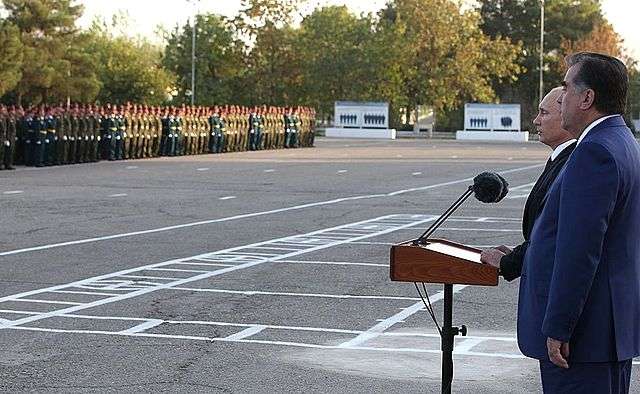
Geopolitical Report ISSN 2785-2598 Volume 9 Issue 1
Author: Giuliano Bifolchi
The Russian Federation wants militarily to support Tajikistan with the aim of controlling the borders with Afghanistan and contrasting the possible Taliban offensive in the region.
The Deputy Minister of Foreign Affairs of Russia, Andrei Rudenko, stated that the Russian 201st Military base in Tajikistan is equipped with everything necessary to assist the republic in resolving the situation on the border with Afghanistan. However, if additional efforts will be required from the Russian Federation, they will be undertaken.
The Kremlin is constantly monitoring the situation in Norther Afghanistan since the Taliban started their offensive against the Afghan military forces. According to local sources and the data provided by the Russian officials, the Taliban at the moment control 70% of the border. In the last weeks, Moscow has several times confirmed its commitment to support Tajikistan through its 201st Military base in securing the borders with Afghanistan and contrast a possible Taliban offensive in the region.
As Rudenko confirmed to the Russian media, Moscow and Dushanbe are in contact to jointly control the situation of the Tajik-Afghan border and the possible deterioration of the security situation in Northern Afghanistan.
Russia needs to control the security situation in Tajikistan and, in general, in Central Asia, where Moscow has always tried to promote its influence through the Eurasian Economic Union (EAEU) and Collective Security Treaty Organization (CSTO). If the Taliban reaches power in Afghanistan after the U.S. troop withdrawal in September 2021, Moscow is concerned that the Afghan territory might become a logistic hub and ‘safe heaven’ for several terrorist organisations.
Conclusion
In this context, Tajikistan is becoming Moscow’s ‘frontier’ or ‘outpost’ to avoid the rise of terrorist groups and contrast regional instability considering that the Central Asian republics are part of the Russian blizhnee zarubezhe (near abroad) or Lebensraum (vital space) where the Kremlin aims at creating a buffer zone to defend its national territory, promote its foreign and economic strategy and at the same time contrast U.S. and NATO affirmation and the ascension of China as the main commercial trade and political actor.



